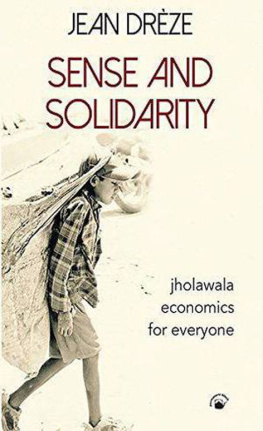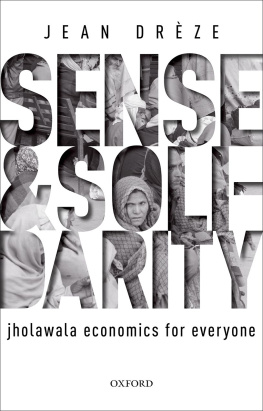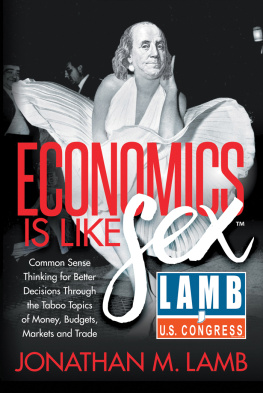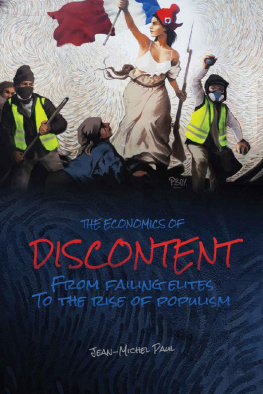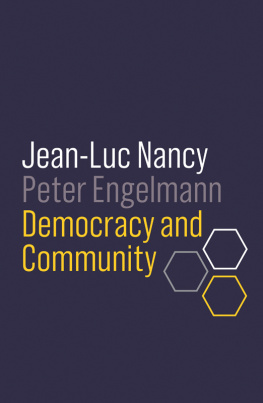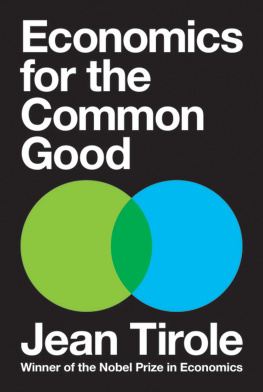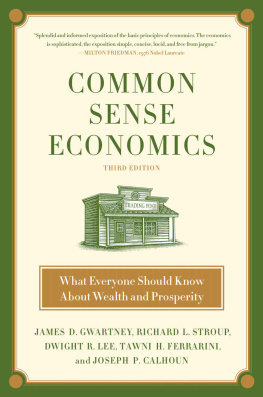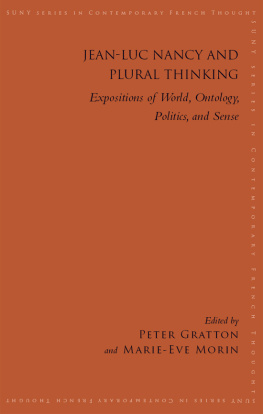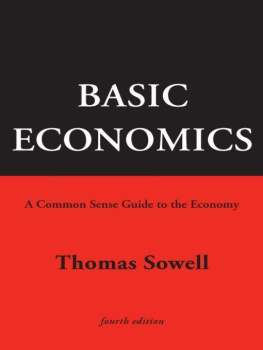Jean Drèze - Sense and Solidarity: Jholawala Economics for Everyone
Here you can read online Jean Drèze - Sense and Solidarity: Jholawala Economics for Everyone full text of the book (entire story) in english for free. Download pdf and epub, get meaning, cover and reviews about this ebook. City: Ranikhet, year: 2017, publisher: Permanent Black, genre: Politics. Description of the work, (preface) as well as reviews are available. Best literature library LitArk.com created for fans of good reading and offers a wide selection of genres:
Romance novel
Science fiction
Adventure
Detective
Science
History
Home and family
Prose
Art
Politics
Computer
Non-fiction
Religion
Business
Children
Humor
Choose a favorite category and find really read worthwhile books. Enjoy immersion in the world of imagination, feel the emotions of the characters or learn something new for yourself, make an fascinating discovery.
- Book:Sense and Solidarity: Jholawala Economics for Everyone
- Author:
- Publisher:Permanent Black
- Genre:
- Year:2017
- City:Ranikhet
- Rating:5 / 5
- Favourites:Add to favourites
- Your mark:
- 100
- 1
- 2
- 3
- 4
- 5
Sense and Solidarity: Jholawala Economics for Everyone: summary, description and annotation
We offer to read an annotation, description, summary or preface (depends on what the author of the book "Sense and Solidarity: Jholawala Economics for Everyone" wrote himself). If you haven't found the necessary information about the book — write in the comments, we will try to find it.
Jean Drèze: author's other books
Who wrote Sense and Solidarity: Jholawala Economics for Everyone? Find out the surname, the name of the author of the book and a list of all author's works by series.
Sense and Solidarity: Jholawala Economics for Everyone — read online for free the complete book (whole text) full work
Below is the text of the book, divided by pages. System saving the place of the last page read, allows you to conveniently read the book "Sense and Solidarity: Jholawala Economics for Everyone" online for free, without having to search again every time where you left off. Put a bookmark, and you can go to the page where you finished reading at any time.
Font size:
Interval:
Bookmark:

Sense and Solidarity
For our entire range of books please use search strings "Orient BlackSwan", "Universities Press India" and "Permanent Black" in store.
Sense and Solidarity
JHOLAWALA ECONOMICS
FOR EVERYONE

JEAN DRZE
Either we all live in a decent world,
or nobody does
ORWELL

Sense and Solidarity
Published by
PERMANENT BLACK
Himalayana, Mall Road, Ranikhet Cantt,
Ranikhet 263645
Distributed by
Orient Blackswan Private Limited
Registered Office
3-6-752 Himayatnagar, Hyderabad 500 029 (A.P.), INDIA
e-mail:
Other Offices
Bengaluru, Bhopal, Chennai, Guwahati,
Hyderabad, Jaipur, Kolkata, Lucknow, Mumbai,
New Delhi, Noida, Patna, Vijayawada
Copyright 2017 jean drze
eISBN 978-81-7824-573-7
e-edition:First Published 2019
ePUB Conversion: .
All rights reserved. No part of this publication may be reproduced, distributed, or transmitted in any form or by any means, including photocopying, recording, or other electronic or mechanical methods, without the prior written permission of the publisher, except in the case of brief quotations embodied in critical reviews and certain other noncommercial uses permitted by copyright law. For permission requests write to the publisher.
- INTRODUCTION
Economics among the Road Scholars - Kerala Tops, Gujarat Flops, Bihar Hops
(with Reetika Khera)
- Kerala Tops, Gujarat Flops, Bihar Hops
ACKNOWLEDGEMENTS
T EN ESSAYS IN THIS collection are co-authored with people who are not only valued colleagues but also dear friends: Bela Bhatia, Angus Deaton, Reetika Khera, Siddhartha, Vivek S., and the PROBE Team (Anuradha De, Pushpendra, Claire Noronha, Anita Rampal, Meera Samson, Amarjeet Sinha, and A.K. Shiva Kumar). Their good advice and influence, in fact, extend well beyond the co-authored articles. Many essays, as well as the Introduction, have also benefited from comments or suggestions from Sabina Alkire, Diane Coffey, Nikhil Dey, Haris Gazdar, Ramachandra Guha, Aashish Gupta, Mustafa Haji, Aparna John, Sneha Menon, Sudha Narayanan, Christian Oldiges, Isabel Pimenta, Vandana Prasad, Kumar Rana, C. Rammanohar Reddy, Amartya Sen, and Dean Spears, among others. Last but not least, I received very helpful editorial advice from Naman Garg, Nazar Khalid, and Jessica Pudussery.
Most of the essays in this book were initially published in The Hindu, one of Indias leading dailies. I am grateful to those of its editors and staff members that I worked with over the years, including Shalini Arun, P. Jacob, Mini Kapoor, Murali N. Krishnaswamy, Nirmala Lakshman, Suresh Nambath, N. Ram, Srinivasan Ramani, N. Ravi, Radhika Santhanam, Siddharth Varadarajan, and R. Vijaya Shankar.
This book would not have seen the light of day without the valuable advice and overwhelming generosity of Rukun Advani and Anuradha Roy. Aside from working on the design of this book as if it were their own, they helped me to clarify my thoughts on many issues. The days I spent with them in their lovely cottage in Ranikhet (Uttarakhand), where Permanent Blacks editorial work happens, are among the happiest in recent memory.
The warmest acknowledgement is collective. It goes to all the scholars, students, volunteers, respondents, friends and others who enriched the journeys that led to this book, from academic conferences and field surveys to public meetings and street demonstrations. As discussed in the Introduction, research for action is by nature a collective effort.
Finally, the Department of Economics at Ranchi University (Jharkhand) provided a congenial environment for the preparation of this book. Jharkhand may seem like an odd destination for a development economist, but for me it turned out to be a better vantage point than the national or international capitals of development research. Among many other gaps in this book, I would have liked to write about what I have learnt from the Adivasi (tribal) world in Jharkhand. Tribal communities tend to be seen as relics of the past, and no doubt their lifestyle will evolve, but I see some of their norms and values (equality, co-operation, freedom, honesty, gusto) as the wave of the future. The last essay in this book, Development and Public-Spiritedness, is partly inspired by their example.
INTRODUCTION
Economics among the Road Scholars
A ROUND THE CORNER FROM my office at Ranchi University in eastern India is a wide avenue that leads into the city, called Kanke Road. If you go there at the crack of dawn, you will see something you may never forget: hundreds of young men, many emaciated and dishevelled, pushing bicycles loaded with more than two hundred kilograms of smuggled coal. Under the cover of darkness, they have walked twenty or thirty kilometres with this stupendous load to sell it in Ranchi and earn just enough to feed their families. Some of them, I am told, dig out the coal from below the land they used to cultivate, before they were forcibly displaced.
This sight often reminds me of George Orwells 1937 essay Down the Mine, especially its last sentence: You and I and the editor of the Times Lit. Supp., and the poets and the Archbishop of Canterbury and Comrade X, author of Marxism for Infants all of us really owe the comparative decency of our lives to poor drudges underground, blackened to the eyes, with their throats full of coal dust, driving their shovels forward with arms and belly muscles of steel. Replace underground with on the road and shovel with bicycle, and the sentence applies word for word in Ranchi today.
These young men are known as koilawalas (coal guys). I remember seeing the photograph of a koilawala for the first time in P Sainaths book Everybody Loves a Good Drought (1996). The koilawala of today looks the same. Perhaps he has better footwear, and, quite likely, his children are now going to school. But the nature of his predicament has barely changed. It is not very different from slavery, except that he is driven by economic necessity instead of physical coercion.
Another thought often occurs to me when I see the koilawalas. How come they are in their situation, and I in mine? The only answer I can find is: chance. Perhaps a few of them drank or gambled away their land, but most are in that situation for no fault of their own. They were born in a poor family of the wrong caste, suffered from undernutrition in childhood, did not get a chance to study, and so on. In a different environment, they might have become geologists, engineers, artists, or hockey champions. But they never had a chance.
In India, as elsewhere, the privileged tend to nurture the illusion that they deserve what they have. This illusion, however, evaporates with even the most casual introspection. Sure, some rich people work hard but so do koilawalas, construction workers, and domestic helpers. Other bases of privilege have little to do with personal merit: our aptitudes, health, inheritance, social connections, and other assets derive from contingencies (such as the accident of birth) over which we have no control. Even our education reflects inherited circumstances, and our parents and teachers efforts, far more than our own. All this is without going into the fact that wealth and power often build on corruption, exploitation, and crime.
Next pageFont size:
Interval:
Bookmark:
Similar books «Sense and Solidarity: Jholawala Economics for Everyone»
Look at similar books to Sense and Solidarity: Jholawala Economics for Everyone. We have selected literature similar in name and meaning in the hope of providing readers with more options to find new, interesting, not yet read works.
Discussion, reviews of the book Sense and Solidarity: Jholawala Economics for Everyone and just readers' own opinions. Leave your comments, write what you think about the work, its meaning or the main characters. Specify what exactly you liked and what you didn't like, and why you think so.

